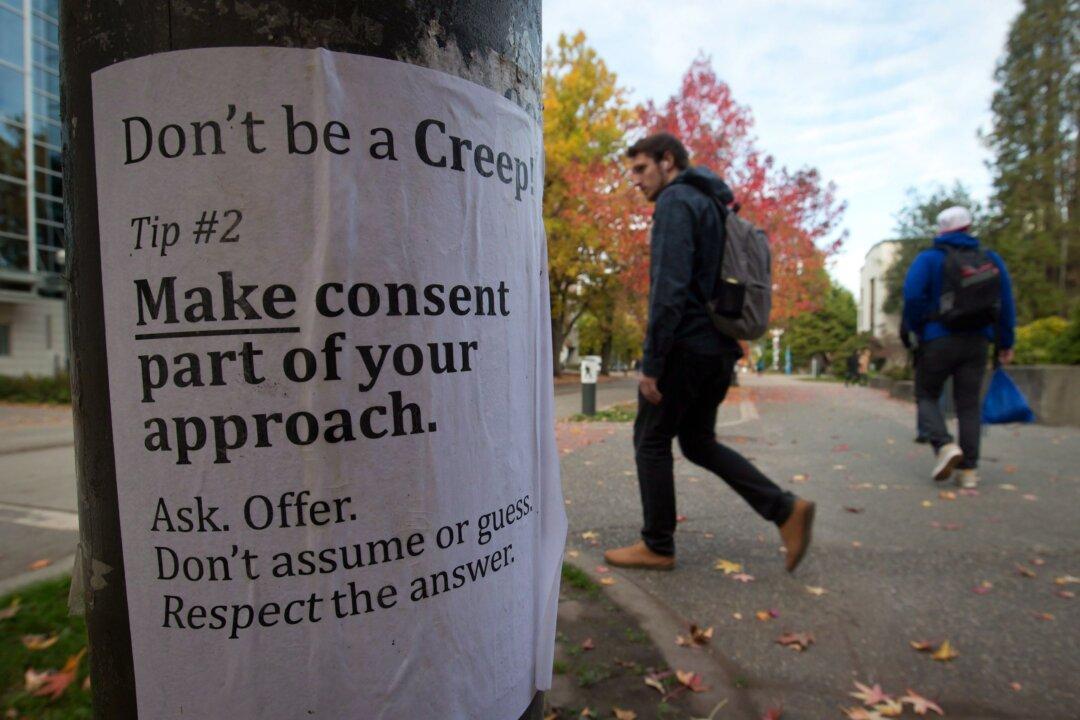VANCOUVER—Accusations that the University of Victoria and Brock University warned women to stay quiet about alleged sexual misconduct reveal the balancing act post-secondary schools face between the rights of the accused and accuser, experts say.
One employment lawyer said there are good reasons to keep an investigation private while it is underway because the accused deserves a presumption of innocence and the university must try to maintain a “clean” probe without publicly sharing evidence.
But Richard Johnson of Kent Employment Law said under Section 25 of British Columbia’s Freedom of Information and Protection of Privacy Act, institutions have an obligation to disclose allegations if there is a threat to public safety.
“If the evidence clearly points to there being more people who are affected or there’s an ongoing threat, yes, they must disclose,” he said.
Another employment lawyer said that while universities have legal reasons to keep investigations private, there might be other factors affecting how the cases are handled.
“The more salacious details that come out with respect to incidents like this, the more universities fear those details being in the media and, quite honestly, harming their bottom line,” said Kristen Pennington of Grosman, Grosman, and Gale. “The path of least resistance is to put pressure on complainants to keep this information quiet.”
Separate incidents at the two schools have drawn new scrutiny into how universities respond to allegations of sexual harassment and assault.





